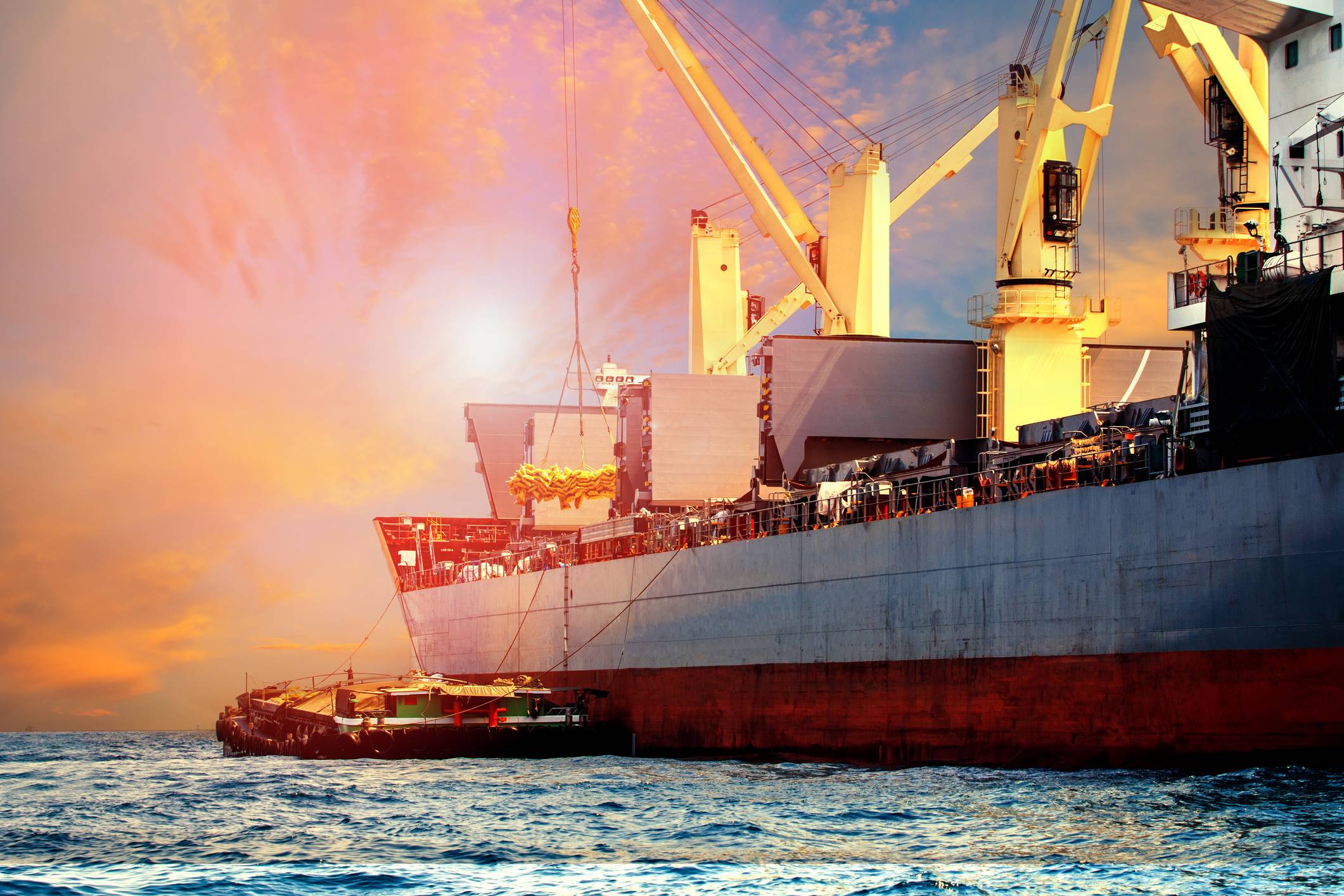In the era of Fridays for Future demos and large voter turnouts for the Greens, it is no longer just about getting “dirty diesel engines” off the streets. As part of environmental policy, the International Maritime Organization (IMO) has issued new regulations to reduce marine pollution from shipping from January 2020. The goal the organization has set for itself: to reduce CO2 emissions caused at sea by half by 2050. OCS knows what needs to be done.
A particularly important feature specified by the IMO is the permissible sulfur content in the fuel. This may be a maximum of 0.5 percent from the beginning of 2020 - previously it was around 3.5 percent. Based on the experience of shipping on the North and Baltic Seas, where only 0.1 percent sulfur has been allowed to be present in fuel since 2015, the organization is in good spirits to also sustainably reduce emissions for international shipping.
IMO 2020 wants to ensure a better ecological balance
There is nothing nice to say because the numbers speak for themselves. With annual emissions of around one billion tons of carbon dioxide, international shipping is responsible for almost three percent of all human-caused fine dust particles. And we're not just talking about container ships or oil tankers that supply the world with important goods and raw materials, but also the tourism industry, which has been traveling the world with fully booked cruise ships for years. Norway has already reacted drastically to this for the residents of the fjords and to protect its own landscape: cruise ships powered by heavy fuel oil are no longer allowed access to the fjords. The IMO wants to restore balance on the water.
What does this mean specifically for you as a customer?
It's happening quickly: Although the IMO regulation only applies from January 1, 2020, we expect increasing freight rates and a surcharge for short-term quotation requests as early as the fourth quarter of 2019. It is particularly likely that the additional costs resulting from the regulation will be passed on directly. The latest research suggests that costs could increase by up to 50 percent, especially in Asia-Europe traffic. On the other hand, the weaker demand on this route could counteract the increased cost rate. Unfortunately, from our point of view, it is not possible to predict exactly how fuel prices will develop. Changes in fuel prices depend on various factors, be it geopolitical events or trade wars, OPEC measures or the global economy in general. IMO2020 will probably simply be another influencing factor that will contribute to price fluctuations.
The only thing that is clear is that the regulation will lead to higher costs than before because the new fuel, with only 0.5 percent sulfur dioxide content, is significantly more expensive to produce. The conversion costs must also inevitably be taken into account, so a medium-term increase of 150 to 250 USD per TEU must be assumed. Every company dependent on sea freight will be confronted with increasing costs after the IMO 2020 comes into force. So, just like any other logistics subcontractor, we will have to pass these costs on to our customers.
Understanding of environmental measures increases
Although the term “increased costs” may sound complicated and difficult, we believe that the value of these investments represents a significant return. It is we who can actively do something for our environment here and now. The sustainability of such measures secures our future and that of our children and will go down in history as a small milestone that contributes to more environmentally friendly means of transport. And perhaps the increase in costs simply means that more regional production is used again, thereby strengthening the local economy. The creation of new jobs in the local regions is still on another wish list anyway. From this point of view, increased costs are easier to bear, right?
The OCS forwarding company also makes its own contribution to environmental protection
There are certainly measures that we logistics service providers can take into our own hands in order to be able to work with the new regulation in an environmentally conscious and yet profit-promoting manner. After all, the logistics sector remains the most important organ for creating value for people from all over the world. For example, OCS cooperates with shipping companies that use liquid gases as fuel and are actively working on CO2 reduction. And active sounds just as “attractive” to us: that’s why we are also committed to environmental protection and support The Ocean Cleanup initiative. If we have something to discuss with partners or customers in distant places within Germany, we travel by train instead of by plane. We also only use LED lighting in our offices, which allows us to work effectively and save energy even in the winter months. Because we are sure: everyone, really everyone, can try to protect the environment in their own small way. In the grand scheme of things, there are many small pieces of the puzzle that ultimately change something - before one day the light might go out completely.
Do you need more information on this topic?
Please do not hesitate to contact us directly. Your logistics experts at OCS will be happy to advise you if you are still unsure about how you and your company can make your own contribution to environmental protection. If you have any questions about costs, we will be happy to provide you with more information when the new price level becomes known.





